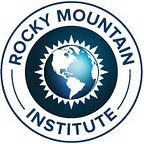Connecting People to Clean Energy
Bringing renewable power to communities around the world
Much of the world’s population burns dirty fuel for energy. We are changing that with the help of partners and supporters like you. Too much of the world relies on coal and oil for electricity — we’re helping those who do to gain access to clean, renewable energy.
We’re also helping some of the more than 1 billion people who don’t have access to electricity power their lives and livelihoods with wind, solar, and batteries. We’re doing this because everyone deserves access to lifesaving
and life-changing technologies like refrigeration and fume-free illumination, and because our climate cannot withstand burning additional fossil fuels for so many more people.
In the past year, we’ve done much to connect hundreds of millions of people to clean energy, both in the U.S. and around the world. Following is a sample of what we’ve done with the help of donors and partners like you.
Worked with the city of Rochester, NY, to create jobs and reduce poverty through community-scale solar development.
Efforts included the creation of a green jobs cooperative and a risk-reducing project structure that bundles electricity demand from underserved communities with demand from customers with stronger credit, ensuring market access to a wider range of customers.
Delivered the first utility-scale solar energy projects on RMI’s partner islands Saint Lucia, Turks and Caicos, and Montserrat.
Renewable energy projects are also in development on Saint Vincent and the Grenadines and Belize’s St. George’s Caye. In all, we’ve identified 28 renewable energy projects in nine island nations totaling 130 MW. Collectively, these projects will put islands on an irreversible pathway to having high levels of renewables in their energy mix.
Helped Uganda avoid projected large increases in electricity prices and stay on track for bringing electricity to 80 percent of its citizens by 2040.
We identified potential savings of $1 billion per year in overall spending on electricity by stimulating productive uses to utilize current excess capacity so that people and businesses benefit from the service electricity offers in the short term, and by investing in minigrids and solar home systems over the longer term to spur lasting development.
Accelerated the development of business models that enable low-income communities to benefit from clean energy in the U.S.
Bringing together energy experts and community leaders, RMI’s eLab Forge event advanced four teams in the concept stage of business development to extend clean energy access to the many millions of Americans who bear the greatest energy-cost burden and who have limited access to capital under business as usual.
Charted a path to commercially viable minigrids to serve the millions who live far from centralized power grids.
Focusing on sub-Saharan Africa, RMI identified the key drivers of minigrid costs and the path to bringing them down so that minigrids will become profitable investments, like mobile phone networks. We’re preparing a series of minigrid pilot projects to bend the cost curve down and spread clean, dependable power to the people who lack it.
Got international development agencies together to head off a looming problem with electrification in the developing world:
a lack of integrated planning, which can lead countries to build the wrong types or amounts of generation capacity and can create significant unnecessary cost. We convened major funders, including Power Africa, the World Bank, the African Development Bank, and the Millennium Challenge Corporation, to address this problem before it harms efforts to bring electricity to those without it.
Collaboratively developed an electric-power market design tool with China’s State Grid’s Electric Power Research Institute.
Together with the largest utility in the world, RMI helped develop an economic model to support China’s transition to competitive wholesale electricity markets. The tool is being tested and should help speed the government’s progress toward helping renewables compete more favorably against traditional coal plants.
Developed a plan to save customers in Sierra Leone — and the utility — $32 million per year by 2020 and crafted a path to double electricity access and enable 6 percent per year GDP growth
by improving efficiency, fixing distribution issues, and adding solar-diesel hybrid generation while also accelerating off-grid programs. The result? Cleaner energy that will grow the economy, save money, and bring electricity to homes and businesses.
Created a web-based community for Caribbean utility engineers, government practitioners, and development partners
to learn from each other and work together without crossing the sea. Now experts in these isolated economies are able to stay up to date and access training on the state of the art in the vital — and complex — work of switching from diesel to wind and sun to provide electricity.
Created national electricity transition strategies for Saint Lucia, Saint Vincent and the Grenadines, and Colombia’s San Andrés Islands.
We are also pioneering an efficient, collaborative planning process with those islands’ governments, utilities, and other stakeholders. Now a rapid and effective way to plan island states’ clean energy transformation is up and running — most immediately in Belize and Montserrat.
